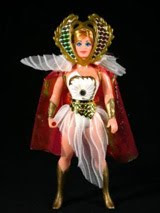
This book, written using a modified dialect from Unchained Memories: Readings form the Slave Narratives, tells the dramatic and heart-wrenching story of the Crosswhites - A family who flees a Kentucky plantation after a young man, January, is brutally beat and left for dead in the streets. January had whittled a wooden sparrow for Sadie, the main character of the story. Although they weren't really related as family, Sadie and January were as close as brother and sister. When the family leaves the plantation, Sadie forgets the priceless wooden sparrow from her "eldest brother" January for whom a grave was dug by Sadie's father before they ran. Sadie continues to think about the message the little bird stood for: "".
The reader becomes attached to the family and hopes for their safe escape. They find refuge in Marshall Michigan after traveling for some time on the Underground Railroad. Finally the little wooden sparrow resurfaces with a note of warning from the slaveholders: "I found you." The family once again fears for their lives. The entire community of Marshall, both black and white, fight for the rights of the Crosswhites, "people ain't nobody's property!"
The reader is surprised by a pleasant ending and an unlikely reunion at the end of the book. Polacco really knows how to reach out with the emotions of creativity in text and illustrations, to grab your interest and really make you think about how it may have been for this family in the 1840's.
The illustrations are large, colorful, and descriptive. Accurately depicting the emotions on the faces of the people in the story. There are some pages that may be considered violent or graphic, but I feel that this is only necessary to create such strong feelings and reactions from a reading audience.
January's Sparrow is a long picture book - 94 pages (was in the fiction section of the curriculum lab). I think that this would be a wonderful book to read aloud in a classroom to introduce ideas of racial discrimination, prejudice, and civil rights movements, or to just get kids thinking! Thinking about the history of this country, and what we can do as people of the future to continue to expand the growing ideals of acceptance and compassion.


No comments:
Post a Comment